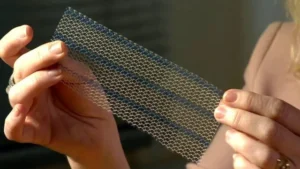‘He called me a liar’: I inherited a $650,000 house from my grandparents, but my husband says I’ll never have any money when I’m older. Is he right?


Dear Quentin,
I am the sole beneficiary of an inheritance. I inherited my grandparents’ house, which is worth $650,000. I also have about that much in the bank. My husband says the house does not count toward my net worth (for what it’s worth, the house in question has been paid off for 35 years).
I plan to buy a second home as an investment property. My grandparents made their money in real estate and investments. They were stockbrokers and accountants. I have what’s mine, and my husband has the trailer he inherited from his dad that he lets sit there and does nothing with.
Most Read from MarketWatch
He wants me to buy a refrigerator and pay to fix it. That’s not my job! I told him all this equals a net worth more than $1 million, and he called me a liar. He is always telling me how poor I am and how I’ll never have any money when I’m older.
He brings this up constantly. Is he right? Or am I a millionaire?
Not Feeling Like a Millionaire

Dear Millionaire,
First of all, congratulations. You are a millionaire, at least on paper. Unless you have $300,000 in debts in your name alone, you have passed the $1 million mark. Your husband is wrong about your financial status. What’s more intriguing is why he cares.
Your husband may be abusive. He may be a schmuck. He may be both. I don’t know, but I do know that you should never get used to normalizing unhealthy and toxic behavior, particularly the kind of comments that are designed to make you feel “less than.”
Your net worth is calculated by deducting your liabilities from your assets. You inherited a house and you have $650,000 in a bank account. That comes out to $1.3 million. If you have any personal loans, that would decrease your personal wealth by the amount remaining on those loans.
If you have property with a mortgage and failed to keep that account separate from your husband’s, that could mean that property could be commingled. Similarly, if you received an inheritance and deposited that money in a joint account instead of a separate bank account, that money would be commingled.
In the event of a divorce, in a community-property state any assets acquired during the marriage are regarded as marital property. That includes contributions to and appreciation of an IRA or a 401(k) during the marriage, which can often coincide with a couple’s peak earning years.
In an equitable-distribution state, your assets are divided fairly but not necessarily equally. Generally, the assets you brought into the marriage are regarded as separate as long as you keep them that way, and the same will apply to your $650,000 property.
Whatever you do with your inherited property, don’t use marital funds to renovate it, and don’t sell it and put the proceeds in a joint bank account. Otherwise, that investment will cease to be separate property. Ditto if you buy an investment property. If your husband contributes in any significant way to the upkeep or renovations of your grandparents’ home, you risk commingling that asset.
Your problem is not financial
All that said, your problem is not financial. Your problem is sitting on the other side of the kitchen table, undermining your confidence, stealing your sunshine and trying to give you as few options in life as possible. But understand this: You do have options, and plenty of them.
You are in a fortunate position. In 29% of marriages today, according to the Pew Research Center, both spouses earn about the same amount of money, while 55% have a husband who is the primary or sole breadwinner and 16% have a breadwinner wife.
I don’t know why your husband insists on putting you down and trying to instill fear and insecurity in you, especially when you have so much going for you. My only guess — and it is a guess — is that the more financial independence you have, the less control he has over you.
The high cost of gaslighting
And now I’m going to mark your card: Coercive control and financial abuse are often tied together. The vast majority of domestic-abuse cases also involve economic abuse, and finances are one of the main reasons a person stays with or returns to an abusive partner.
“Economic abuse is a unique form of intimate partner violence and includes behaviors that control a survivor’s ability to acquire, use, and maintain resources,” according to a review of studies published in BMC Public Health, an open-access, peer-reviewed journal.
“These tactics can result in someone becoming economically dependent on their partner and may limit their ability to leave the relationship and establish independence,” it says. When you stop believing in yourself and your abilities, you and your finances are vulnerable to abuse.
Gaslighters are people who cast themselves in a positive light — as a friend or confidante who is there to help — but who are actually manipulating or undermining others, usually but not always from the shadows, which adds to their ability to confuse you.
Merriam-Webster defines gaslighting as “psychological manipulation” that causes the victim to question their perception of reality and can lead to “loss of confidence and self-esteem, uncertainty of one’s emotional or mental stability, and a dependency on the perpetrator.”
The term was coined in a 1938 play, “Gas Light,” a psychological thriller set in Victorian London and written by Patrick Hamilton, which was turned into a 1944 film starring Ingrid Bergman and Charles Boyer. Sometimes, the gaslighter wants money. Other times, it’s control.
Don’t allow anyone to chip away at your finances, happiness or reality. Perhaps I’m overreacting or perhaps that’s what someone who is putting you down instead of building you up would like us to believe. Here’s what I do know: This new house will give you a new source of income.
Financial independence brings power. Never underestimate that.
Previous columns by Quentin Fottrell:








